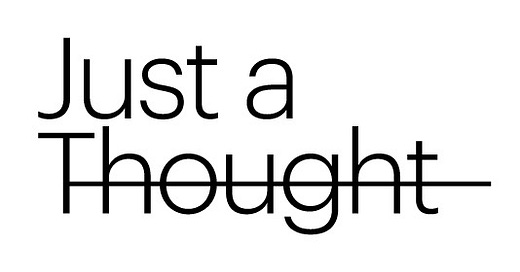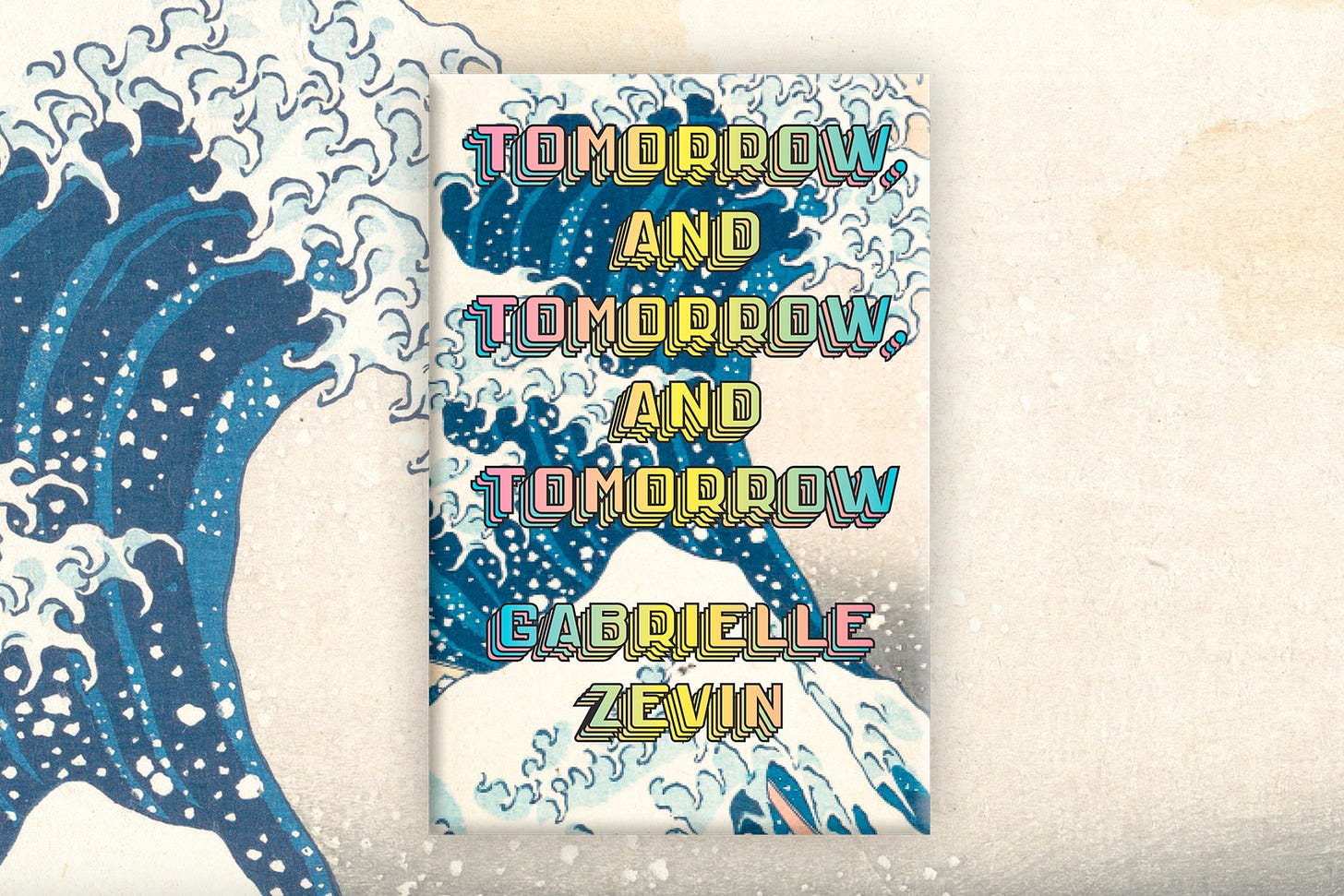Born in the greatest half-decade ever
The best five-year birth window in US history was ~30 years ago (for now)
In a society that seems to be in an endless exhibition of the suffering olympics, I’d like to take this time to express immense gratitude for being born in what I believe to be the greatest half-decade ever. Of course, the likelihood of this claim means that I am either incredibly lucky or a narcissist. I’m certain it’s the former, though perhaps it’s both.
Despite understanding the value and validity of statistical conclusions from large numbers, I find sweeping negative generalizations of generations to be boring and lazy. Young people of today are not worse than young people of yesterday. Old people of today are not worse than old people of tomorrow. The only abstractions I’ll accept about any group of people at any point in time is that they were born into a certain set of circumstances. And it just so happens my circumstances were the best they have ever been in recorded history.
I was born in 1994, squarely in the window I’ve appointed the greatest half-decade ever: 1991 - 1996. Generationally speaking, this is the last third of the millennials.
It’s not controversial to suggest that the overall quality of life on earth has increased in each subsequent decade for the last 100 years or so. By most objective measures, it has. And I tend to think that many of the things that are “terrible” today are merely the result of a society moving up on Maslow's hierarchy of needs. To that point, I actually think the pyramid, which narrows at the top, may not be the best shape to depict the hierarchy. A more narrow top seems to imply less issues, but I actually think that the gross number of issues remains, just the issues themselves become more nuanced. The collective forgets they’ve moved up the rung (a layer of the pyramid) and that today’s battles are not as serious as they were for our predecessors. The worst thing most people can imagine is the worst thing that’s happened to them. A 10 on the scale is a measure relative to your own experience. Put it this way: a “culture war” can only be the most-pressing issue for a significant subset of a population that has hot, running water.
But back to my case for the fortune of 1991 - 1996 babies. The majority of my thesis rests on a few ideas related to the timing of technological advancements and this cohort’s relative life position at the time of some major global events.
The assumptions this essay relies on are that 9/11, 2008 Financial Crisis, and COVID-19 are the worst things to happen to Americans in the last 30 years and that the iPhone and Facebook are the technological innovations that have had the most societal impact in modern history. Another assumption on the technology portion is that other technological improvements, specifically in science, affect the population equally.
People born in the greatest half-century ever grew up around technology, only having internet access at home, in school, or at the library. It was an accessory — a luxury even — complimentary to the type of childhood most people seem to agree is best: mostly outside, which kids are doing this less than ever, and we mostly seem to agree is bad. We are not just digital native, but social media native — coming of age at the exact same time as the forces that drive much of how our world is shaped today. We grew up with a MySpace account that taught some of us how to code and a Facebook that taught us the power of global networks, but access was only as available as devices with access to the internet. My peers have never struggled with the intuitive UX of an app (generally knowing which way to swipe on what), and we know how to Google things by appending “Reddit” to our searches, and that typing is to be done with more than just the pointer fingers.
Our place in the technology timeline has led to a healthy amount of skepticism about any new app’s intentions and implications on our well-being. For us, it’s always been clear that technology was only going to become more prevalent, but wasn’t where the majority of us spent significant time as we aged into adulthood. By being in this window, we have a healthier relationship with technology than most. We can empathize with those just younger than us whose entire lives have been completely online and those older than us for whom things often do not come as easily. We kickstarted the network effects, but avoided the contagion. A mutualistic symbiosis.
Our lives have been easy, despite the calamities of the 21st century. If you were born between 1991 and 1996 you were just old enough to understand the magnitude of the 9/11 terrorist attacks, but not old enough to be directly affected by the ensuing war. Though our parents were likely affected (mine were, in a big way) by the Great Recession, it did not affect our employment prospects. During the height of the COVID-19 Pandemic, people in this group were out of school and therefore did not miss out on any part of the once-in-a-lifetime college experience, nor were we old enough to have kids and the stresses that came with two years of Zoom school.
There are, of course, troubling facts about the time we’ve been alive. Doomerism, like most worldviews, is based in some truth. The thing is: for the most part, its truths are equally true for all generations. Sure, we’re less likely to own a home than our parents were, but we can instead work from someone else’s well-appointed home in Berlin for a month. To be almost-30 in 2023, I feel both incredibly lucky (objectively, I am) and optimistic. Though my half-decade-comrades and I may currently hold the crown, I am eager for it to get passed down to new winners soon. We really could use another couple of cohorts contending to claim to be luckiest — sure as hell beats the opposite.
Astier de Villate Incense
It took a minute, but I’ve become an incense guy. Even as one who leans hippie, becoming someone who actually lit incense seemed like a bridge too far for most of my life. That was stupid. Why wouldn’t you want the space around you to smell nice? While I do enjoy the palo santo sticks, I find the constant relighting to be a chore. (If I’m doing something wrong, please let me know.) That’s why I’ve taken to the incense from Astier de Villate. The thin sticks from the Parisian brand burn easily and have fragrances (Oulan Bator is my current fave) more akin to a parfumerie than a weed shop.
—Justin
Black Soldiers Cycled 1,900 Miles Across the U.S. So He Did, Too.
As much as I enjoyed the interview with Erick Cedeño, who recreated the journey that Black soldiers made in 1897, learning more about the original historical event was what really piqued my interest. Aside from the human achievement required to ride 1,900 on a fixed gear bike across rugged terrain with minimal access to food and water, reading more about how the soldiers were treated during their ride and after is fascinating.
—Justin
Tomorrow, and Tomorrow, and Tomorrow
This rec is an excerpt from Jackson Dahl’s recently revived newsletter
“The best fiction invites you to live inside it. It introduces you to characters to admire, befriend, fall for, resent, or all of the above. This novel filled me up and I didn't want to leave it. I'm already nostalgic for my time with Sadie, Sam, and Marx, and I’ve already considered starting a re-read. I finished the book a few weeks ago.
I'll be the first to admit that this is a story written for people like me. And when half a dozen close friends recommend the same book to you in a matter of weeks, it's probably a sign that it's for you. It's about friendship, creation, art, games, entrepreneurship, love, and of course: the passage of time™. They're playing Jackson's greatest hits!
But it's also a gift for anyone with a desire to make something new. To bring something into the world is an act of bravery and naivete; and better yet when done through the special dance that is true collaboration. For anyone who cares about either of those two things, I think you will cherish it.”
Jackson also included my Goodreads review for this book in his amazing write-up:
the first thing I did after finishing this book, before texting anyone or writing this review, was return it early to the library, because I want whoever is waiting for it to start it yesterday. grateful for stories like these, and their creators. a perfect novel in every way.
—Andrew
Dilla Time
This book has changed the way I’m listening to music, much in the way Dilla changed the way music was made. Another quote from another 5-star Goodreads review:
“must-read — or in my case, listen — for any modern music fans (not just hip-hop fans!)”
—Andrew












